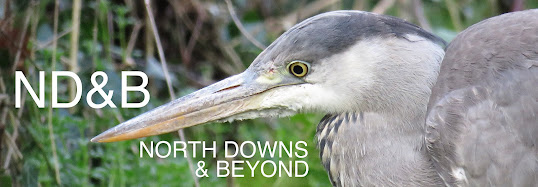A summer swarm and a salty banquet
Dungeness July 1983
I’ve seen this sort of thing happen at Dungeness before, but
not in these numbers. I’m standing on top of the moat looking northwards over
the trapping area at a mass of birds circling over the sallow bushes, some
100-200 feet high. Through binoculars we realise that the birds are actively
feeding on flying insects and that the flock not only extends further towards
the Long Pits than we thought but also considerably higher. The calm, muggy air
has created a heat haze and also ensured that although these birds are several
hundred yards away we can clearly hear them calling – the odd individual
utterance in a mostly silent gathering. Time and space is condensed. There must
be 3,000 Black-headed Gulls along with maybe 300 Common Gulls. There are also
terns and hirundines to be picked out amongst this larid feeding frenzy. A
menacing dark shape has joined them – an Arctic Skua. It benignly snaps for
insects along with the gulls that it would so freely hassle over the sea if
things were different and adds a certain flourish to this spectacular aerial
display.
September 1983
A severe WSW wind has battered Dungeness over the past two
days. We have been seawatching from the fishing boats, sheltered from the wind
by their hulls. The action has not been out at sea however. Where the waves
have been crashing onto the beach a veritable tideline of dead marine life has
been cast before us. I cannot identify what they are. Someone suggests
evocative names such as Sea Mice, Sea Urchins, Sea Anemones… whatever they
might be they appear as an exotic and disturbing seafood banquet. There are
tens, maybe hundreds of thousands of these organisms before us. They all appear
dead. Not a wriggle or squirm between them.
October 1983
It’s mid-week, the day-tripping birders are non-existent and I’ve got the place practically to myself. For late October it’s incredibly mild. A weak sunshine gives enough warmth to entice a few Red Admirals and Small Coppers to flit fitfully in the moat and for me to not need a jacket, gloves or hat. I’ve taken a chair from the common room, placed it at the crest of the moat looking eastwards and have sat down with my scope on a tripod ready to scan for visible migrants, knowing that the process will be slow but ultimately rewarding. For the past couple of days I’ve done this and have felt totally at rest, counting the odd flock of migrant Starlings or Wood Pigeons, but also delighted in the appearance of Hen Harriers off the sea. OK, my use of the plural only denotes two birds yesterday and one the day before, but they were bona fide migrants arriving in off the sea and heading purposefully westwards, low across the shingle. All ring-tails. If I see another this afternoon it will be a bonus. What really chuffs me about these harriers is that they are all mine, no-one else is here to see them or record them and I feel a certain priviledge in doing so. Birding rarely feels so personal.
It’s mid-week, the day-tripping birders are non-existent and I’ve got the place practically to myself. For late October it’s incredibly mild. A weak sunshine gives enough warmth to entice a few Red Admirals and Small Coppers to flit fitfully in the moat and for me to not need a jacket, gloves or hat. I’ve taken a chair from the common room, placed it at the crest of the moat looking eastwards and have sat down with my scope on a tripod ready to scan for visible migrants, knowing that the process will be slow but ultimately rewarding. For the past couple of days I’ve done this and have felt totally at rest, counting the odd flock of migrant Starlings or Wood Pigeons, but also delighted in the appearance of Hen Harriers off the sea. OK, my use of the plural only denotes two birds yesterday and one the day before, but they were bona fide migrants arriving in off the sea and heading purposefully westwards, low across the shingle. All ring-tails. If I see another this afternoon it will be a bonus. What really chuffs me about these harriers is that they are all mine, no-one else is here to see them or record them and I feel a certain priviledge in doing so. Birding rarely feels so personal.


Comments